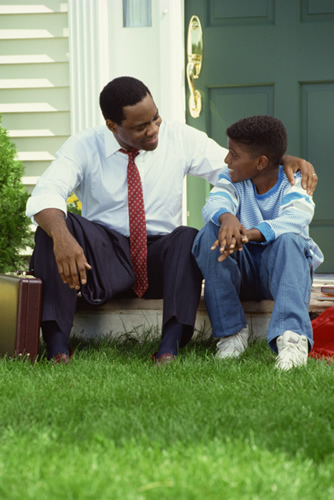-
Reading Together Makes Skills Blast OffNow that your child knows how to read, it may not seem necessary to read withhim/her every day. But it is! Sharing books helps you stay connected whilestrengthening your child's skills. Reading together has the power to:
Boost vocabulary. Children listen on a higher level than they read.Your 2nd grader, for instance, can likely understand a story written for a 4thgrader if it's read aloud. Hearing new words in context has a greater impact than studying vocabulary lists, because your child learns their meanings and how to usethem.Foster critical thinking skills. Talking about what you're reading gives your child a chance to flex logic, analytical, and prediction skills. Think out loud as you read ("I wonder what Kissin' Kate has to do with Stanley."), and ask questions: Why did the characters act that way? What do you think will happen next? Make the questions fun andconversational, so your child doesnt feel like she's being quizzed.
Develop writing skills. Your child will be better able to express herself if he/she hears the rhythm and structure of written language often. Exposure to print also helps him/her improve spelling and punctuation skills. Plus, great stories inspire a writer's imagination!

When my child reads aloud, should I correct her mistakes?
Correcting him/her for every small reading mistake may frustrate your child and turn reading into something he/she dreads. But to help him/her sharpen reading skills, you should correct him/her if (1) he/she substitutes one word for another or omits a word that changes the sentence's meaning or turns it into nonsense; (2) he/she needs helpwith hard words that are key to understanding the passage.

Talking with Kids About Their Day
Brought to you by The American School Counselor Association.For ages: Four to eight
The scene
You: "How was your day?"
Your child: "Good."
You: "What'd you do?"
Your child: "Nothing."Looking for more than one-word answers from your kids about their school day? Here are seven ways to find out what they're really up to.
Ask specific questions
Asking questions that only require a one-word answer will oftentimes produce just that. You can encourage your child to give something more by asking "situation-specific" questions, such as:- "What did you do on the playground today?"
- "Who did you play with?"
- "Tell me the best part of the story the teacher read today."
Start a "names I know" list
Have your child start a list at the beginning of the school year called "Names I Know" or "My Class." Keep it on the refrigerator. Ask specific questions about the kids on the list. Little kids can have trouble keeping track of names, and your child might want to talk to you about someone whose name he can't remember. Keeping an ongoing list serves as a memory jogger for your child and a conversation starter for you in the early weeks before class lists get distributed.Bonus tip: To encourage literacy, put magnetic alphabet letters on the fridge. Have your child use them to spell out the names he knows.
Give your child time to unwind
Think about your own after-work needs. Just like you, kids need time to decompress after a long day at school. Try not to jump right in with questions about school the moment your kids are dismissed. Give your child time to get home, unwind, and sit with a snack. You might even want to wait until dinner; that just might be the amount of transition time they need.Hone your kids' conversation skills
If you're not getting the answer you're looking for from your kids, it could be that their conversation skills need a little work. Helping kids practice the art of conversation will serve them well in making and keeping friends. Show them that a good conversation begins with eye contact, appropriate body language, and a warm greeting.Share some of your day.
By sharing how your day went, you're modeling for your kids the kind of information that you'd like to hear from them: "This is what I did today that I felt really good about. ..." "This is what I did today that was a little bit hard, but I did it anyway. ..." These statements naturally lead to questions that you can ask your kids: "What was one thing that you did today that was hard (or fun) for you?"Play a conversation game.
Children at this age have rich imaginations and love stories. Try turning school conversations into stories. Begin by saying, "Today, I went to school and sat down right next to _________." Let your child fill in the blank. "First, we opened up our backpacks and I took out my folder and looked inside and saw ______________."Then try injecting a little humor: "Next, we hung up our backpacks and coats and... went right to sleep!" At this your child will probably giggle, or make a face with mock annoyance. Most likely, he'll correct you with the accurate information. Continue until you get to the end of the day, or until you're satisfied that you've heard more than your child would normally volunteer.
Get the facts straight.
From time to time you'll hear information that may concern or even alarm you about your child's day at school. Don't ponder the details -- ask the teacher! It could be that you and your child's teacher are using different terminology, and your child is confused by your questions. On the other hand, if your child complains about being teased or picked on, repeats a complaint with regularity, or complains of frequent trips to the nurse, there may be a real problem. Calling the teacher or school counselor is the best way to find out what's going on, and get your child the support she needs.







